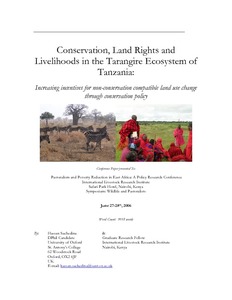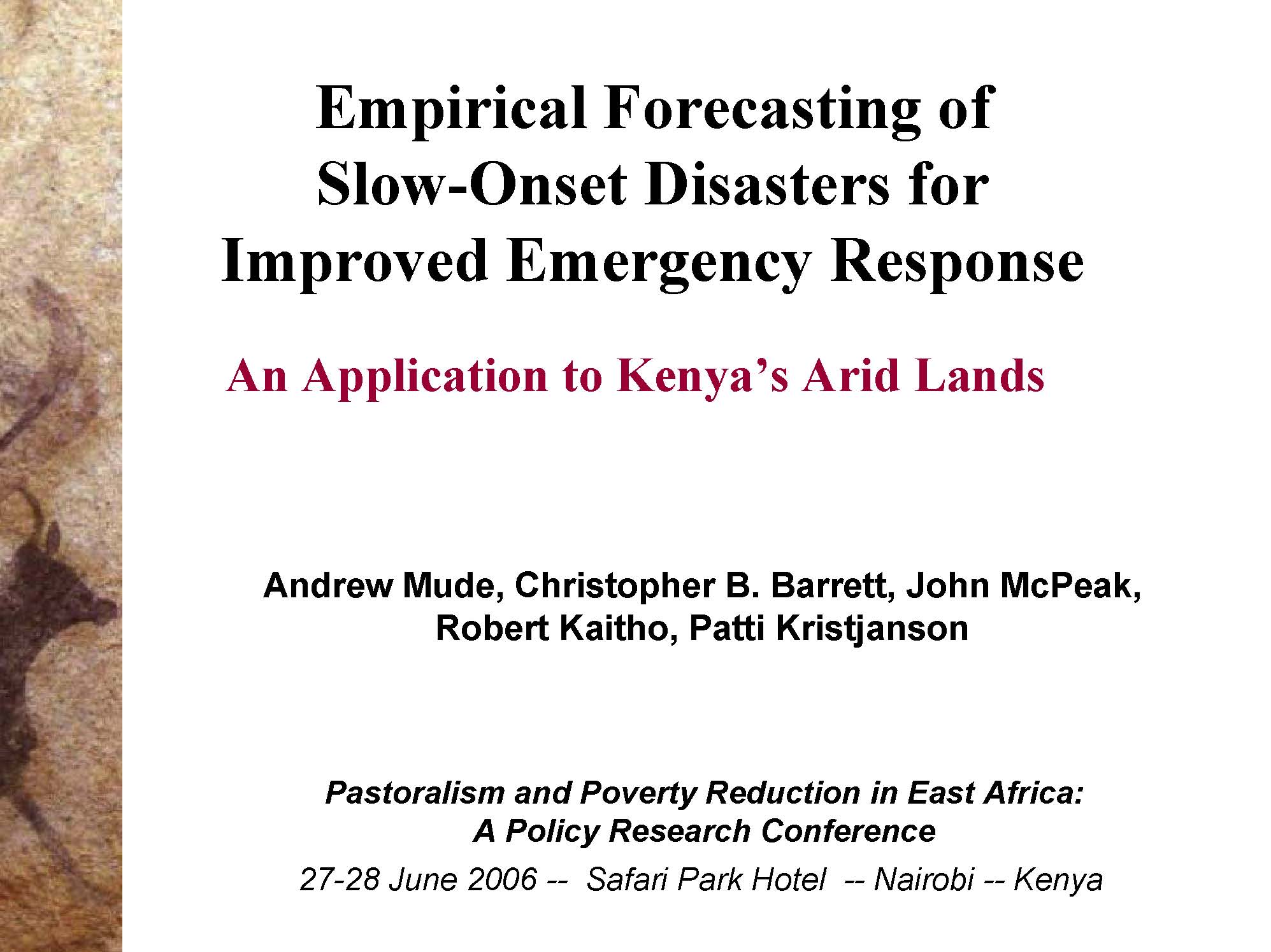Climate change impacts and mitigation in the developing world: an integrated assessment of the agriculture and forestry sectors
This paper conducts an integrated assessment of climate change impacts and climate mitigation on agricultural commodity markets and food availability in low- and middle-income countries. The analysis uses the partial equilibrium model GLOBIOM to generate scenarios to 2080. The findings show that climate change effects on the agricultural sector will increase progressively over the century. By 2030, the impact of climate change on food consumption is moderate but already twice as large in a world with high inequalities than in a more equal world.
Conservation, land rights and livelihoods in the Tarangire ecosystem of Tanzania: Increasing incentives for non-conservation compatible land use change through conservation policy
Poverty and the Distribution of Land
Land reform is a many-splendoured thing. The term has been used to include not only redistributive reforms of ownership rights but also the establishment of collective or communal forms of farming, state sponsored land colonization schemes in frontier areas, and land tenure reforms, i.e., changes in the contractual arrangements between the landowner and those who cultivate the land. In addition, tax (and credit) measures intended to create incentives for large landowners to sell part of their holding sometimes are described as “market friendly” land reforms.
Environment, development and poverty: a report of the international workshop on India’s forest management and ecological revival
India is vast, diverse and complex, in its environments and in environment-society relations. These relationships, and government policies which influence or control them, are the subject of very significant reforms currently occurring in India. At the most fundamental level, this report asks "Who is to protect, manage and regenerate India’s forests, where and for what, and what resources or support does each agent need to fulfil the mandate efficiently and equitably?" The conventional forestry systems have been under scrutiny.
Exploring the spatial variation of food poverty in Ecuador
We examine the geographic dimensions of food consumption in Ecuador, which has one of the highest rates of chronic infant undernutrition in Latin America. We use statistical and spatial analyses to examine the distribution of food consumption and food poverty and to test and generate hypotheses of food poverty estimates at the district level. Results show that the food poor are concentrated in certain locations with a significant cluster identified in the central Andean region.
Exploring ecosystem services contribution to social-ecological resilience in Ethiopian agricultural landscapes.
In this paper, concepts from Socio-Ecological Systems (SES) theory are applied to explore interactions among ecosystem services, livelihoods and resilience of SES. The approach was to i) examine trends in the stock of bundle of ecosystem services in three study landscapes namely Fogera, Jeldu and Diga within the Blue Nile Basin of Ethiopia, ii) describe the trajectories in livelihood strategies, poverty status and present evidence of success and failure in these SES, and iii) explore linkages between stocks of ecosystem services, livelihood conditions and resilience of the SES.
Exploring the forest--poverty link: key concepts, issues and research implications
This paper provides a global review of the link from forests to poverty alleviation. Definitions are clarified and the key concepts and indicators related to livelihoods and policy reduction and prevention are explored--distinguishing between the analysis and the measurements of poverty. Reviewing the macro-level literature on the relationship between economic growth, inequality and poverty, the authors found that economic growth usually does trickle down to the poor and that poverty reduction without growth is in practice very difficult to achieve.
Family fortunes: analysis of changing livelihoods in Maasailand
Forestry, poverty and aid
Very large numbers of the rural poor derive some part of their livelihood inputs from forest resources, in different ways and to different extents. For many the dependence on forests is a function of their poverty, because they lack better alternatives. Helping meet their subsistence and survival needs can therefore be as important a role for forestry aid as supporting those able to increase their incomes through forest activities, but needs to avoid encouraging forms of forest dependence that could lock the very poor into continued poverty.





